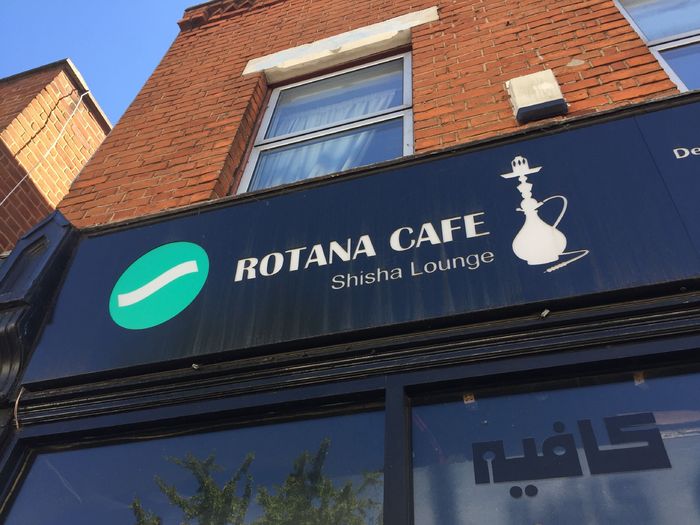Cambridge’s Israeli community join protests against Prime Minister Netanyahu
Israeli academics and students in Cambridge joined a global movement of anti-Netanyahu demonstrations in solidarity with protests in Israel

Israeli expatriates in Cambridge gathered at King’s Backs this afternoon (09/08) to join a global movement of protests against the Israeli Prime Minister, Benjamin Netanyahu.
Over 50 people attended the 3-hour event, at which signs and banners written in Hebrew and English variously adorned Israeli flags, support for democracy, and descriptions of Netanyahu as ‘crime minister’.
Yair Perry, the organiser of today’s event, said that the protest was an opportunity to “raise our voice and support the demonstrations in Israel calling for the prime minister to resign.”
Perry, who is studying the MPhil in Engineering for Sustainable Development at Fitzwilliam College, told Varsity that the purpose of the protest was “not so much to be seen and heard here [in Cambridge]” but to show Israel and share to Israelis “that we are joining other places around the world to send our voice.”

The Cambridge protest is one of a recent wave of demonstrations organised by Israeli expatriates, including in London, where a protest on the 3rd of August was attended by a group of Israeli students from Cambridge.
Perry explained: “we are living here [Cambridge] at the moment, but we are Israeli’s and that’s our country. What’s been going on at the moment affects all of us and we have a say.”
Benjamin Remez, a PhD student in Physics at Wolfson College, highlighted that “Israelis abroad feel very connected to what happens in their home country,” partly because many students and academics anticipate that “they will at some point return to Israel.”
Eyal Soffer, a visiting PhD student in English Literature at Anglia Ruskin, plans to return to Israel within the next few months, at the end of his sabbatical. In discussing his imminent return, Soffer is cautious, explaining: “I’m not sure what will happen with hospitals, schools, demonstrations. Everything is fragile”.

Israel has been beset by protests calling for Netanyahu to resign in recent weeks. Saturday night (08/08) saw the biggest protests in Israel so far, with estimates suggesting that over 15,000 people took to the streets in Jerusalem outside the Prime Minister’s official residence.
Israel is currently facing numerous political crises: the administration’s allegedly poor handling of the Covid-19 pandemic, the deterioration of the economy, the proposed controversial annexation of the West Bank and Netanyahu’s pending trial for three corruption charges.
Although Israel initially seemed to manage the coronavirus pandemic well, easing of restrictions led to a rise in cases. Soffer suggested that the government is operating “without a plan” of how to handle Covid-19. This has included economic problems as compensation payments have allegedly been slow to arrive.

Netanyahu continues to deny any wrong-doing in relation to the corruption charges and has attempted to discredit the protest movement, yet the demonstrations both within and outside of Israel show little sign of easing.
Perry highlighted that it is “becoming evident that you can’t run a country when you are facing criminal charges.” He continued: “once you have a corrupt person, you can question any of their decisions and clearly the good of the public is no longer the focus of his [Netanyahu’s] attention.”
When asked whether the protests were related to the Israeli government’s recently halted annexation plans for the West Bank, Perry said: “annexation was another symptom of corruption - when you are fighting charges, your energy is focused around saving yourself - so nothing is unrelated, whether it’s decisions regarding annexation or enforcing another lockdown.”

He also suggested that Netanyahu is using annexation as “a ticket to distract from his trial.”
The protest in Cambridge followed social distancing guidelines as much as possible and participants were encouraged to wear masks.
Protests in Israel were initially linked to those on the political left, but those on the political right have begun to join the protests. Many are calling for Netanyahu’s resignation.
Perry reaffirmed the cross-section of Israeli society engaging in the protests, highlighting that demonstrators are from “across the political spectrum”, they are “people that are unemployed or see their businesses collapse and they are just sick of it.”
When questioned why Israeli’s in Cambridge have not protested against Netanyahu previously, Perry suggested that “joining from abroad was always kind of questionable”, adding that you would be told that “if you wanted to join the conversation” to return to Israel and vote.
Remez added that “the relative inability to help or effect change from abroad, such as by not being able to vote in absence, is a constant source of both frustration and guilt”.
However, Perry believes that while many Israeli expatriates in Cambridge are “active on social media”, there has never been a “momentum of demonstrations” like this before.
 Interviews / You don’t need to peak at Cambridge, says Robin Harding31 December 2025
Interviews / You don’t need to peak at Cambridge, says Robin Harding31 December 2025 Comment / What happened to men at Cambridge?31 December 2025
Comment / What happened to men at Cambridge?31 December 2025 News / Unions protest handling of redundancies at Epidemiology Unit30 December 2025
News / Unions protest handling of redundancies at Epidemiology Unit30 December 2025 Features / ‘Treated like we’re incompetent’: ents officers on college micromanagement30 December 2025
Features / ‘Treated like we’re incompetent’: ents officers on college micromanagement30 December 2025 News / Varsity’s biggest stories of 202531 December 2025
News / Varsity’s biggest stories of 202531 December 2025











